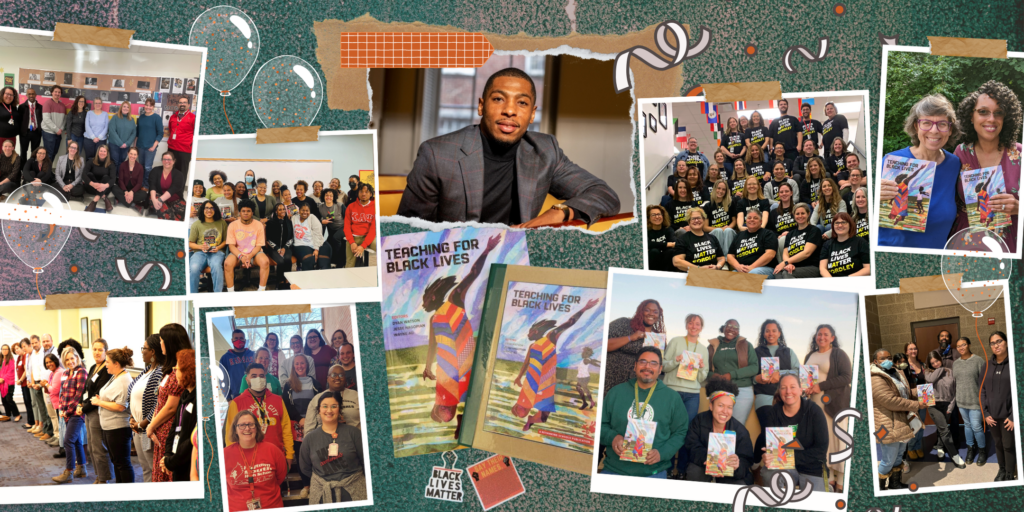
In May 2023, the Zinn Education Project hosted an end-of-year celebration for the 2022–2023 cohort of Teaching for Black Lives study groups. Participants learned from special guest Dr. Jarvis R. Givens, who spoke about his new book, School Clothes: A Collective Memoir of Black Student Witness, with high school teacher and Teaching for Black Lives co-editor, Jesse Hagopian.
Givens said,
I wanted to write a book that was a history of education that centered Black student perspectives. The book pulls together the diaries from Black students in the 1800s. We have a 16-year-old girl writing about her experience attending a mixed race school just outside of Boston, talking about the way that her classmates and teachers treated her, or the frustration she experienced when they were not as outraged as she was when a Black fugitive slave was captured and then sent back into slavery in Virginia. As a young Black girl, she had to make sense of that in shaping her own perspective as a learner, as a young Black political subject.
When we listen to the chorus of Black students, it helps us understand important elements of Black educational history — not just about the institutions or the curriculum. We get a history of the psychosocial experiences of Black students in American schools that I think is an important history for Black students to learn about in the contemporary moment as they’re developing their own learning identities.
It’s a history that teachers who say that they love and care about Black students need to study and have a deep understanding of in order to understand the world that Black students are navigating as a distinct group of racialized learners.
Dr. Givens also explored his framing of Black education as a fugitive project. He explained how the Teaching for Black Lives study groups, in this era of educational gag orders banning discussions of systemic racism, fit into the history of fugitive pedagogy. Dr Givens said,
There was a whole century of Black teachers organizing, beginning as study groups, and then growing into this national network of “colored teacher associations” — the Louisiana Colored Teachers Association, the Alabama State Teachers Association, and the Tennessee Educators of Colored Schools.
In response to their local context and on-the-ground challenges they saw themselves to be facing, they created organizations to be able to advocate on behalf of their collective interest. They realized that individual teachers in particular schools are always going to be vulnerable, which is why intentional organizing and strategizing in a collective way was always important.
Study group members shared reactions in the chat. One person commented, “Student voice adds important context to the complexity of being a Black student — such an important way to gain relevant perspectives.” Another participant said, “This is a wonderful reminder about the history of Black educators as fundamental to understanding the work we need to do.”
Watch the full interview below.
Afterward, participants debriefed in small groups, responding to the prompts:
- Share an idea or moment from the discussion that you found moving or provocative.
- How does the idea of “fugitive pedagogy” relate to this moment and your work?
Read more responses to the event below.

